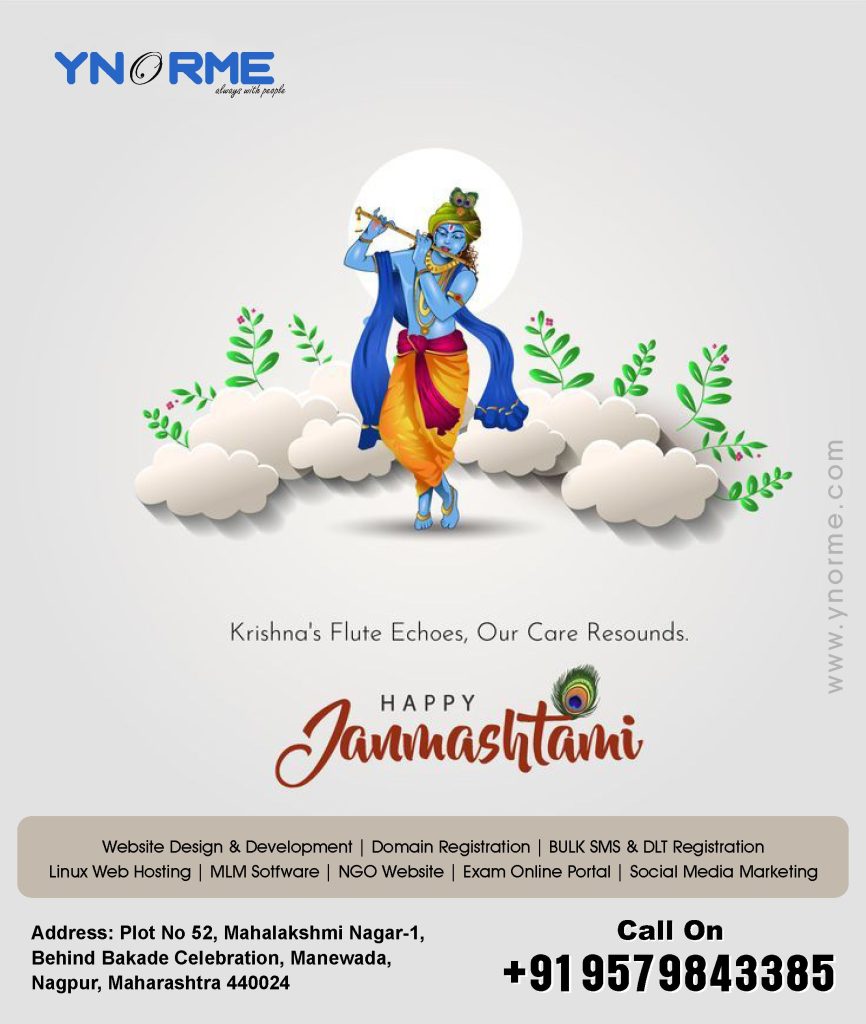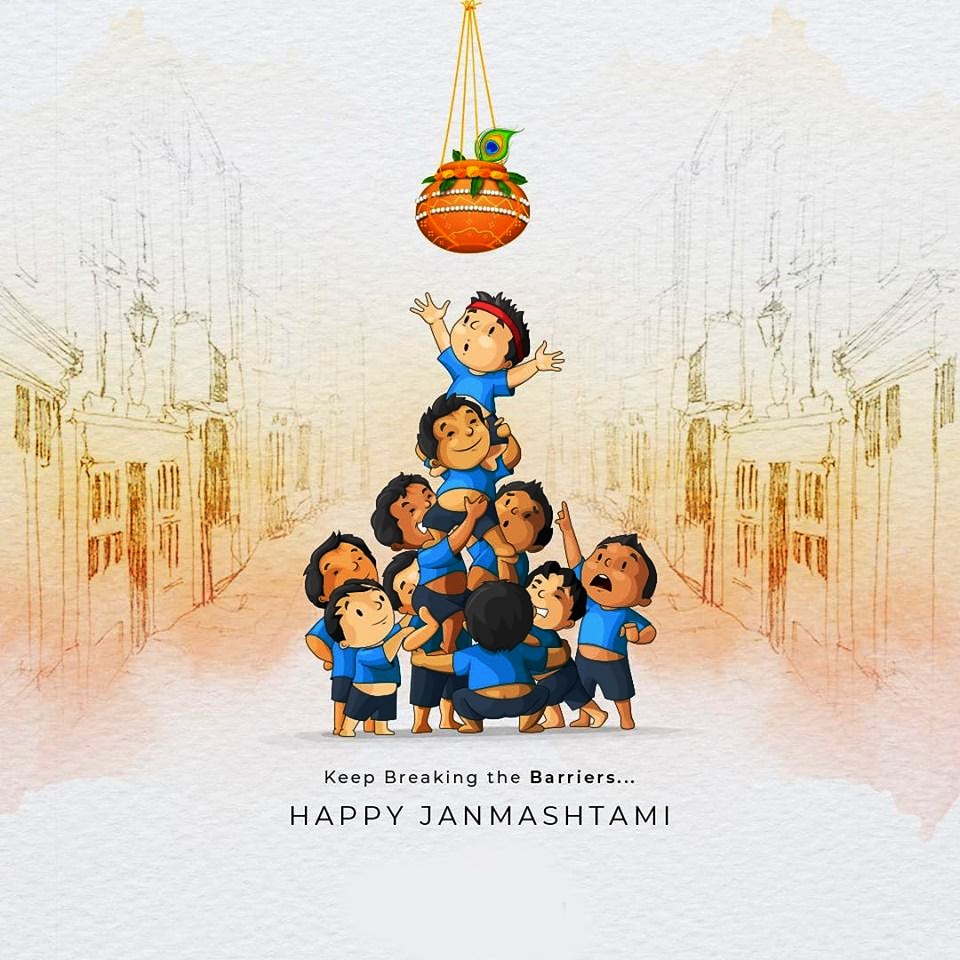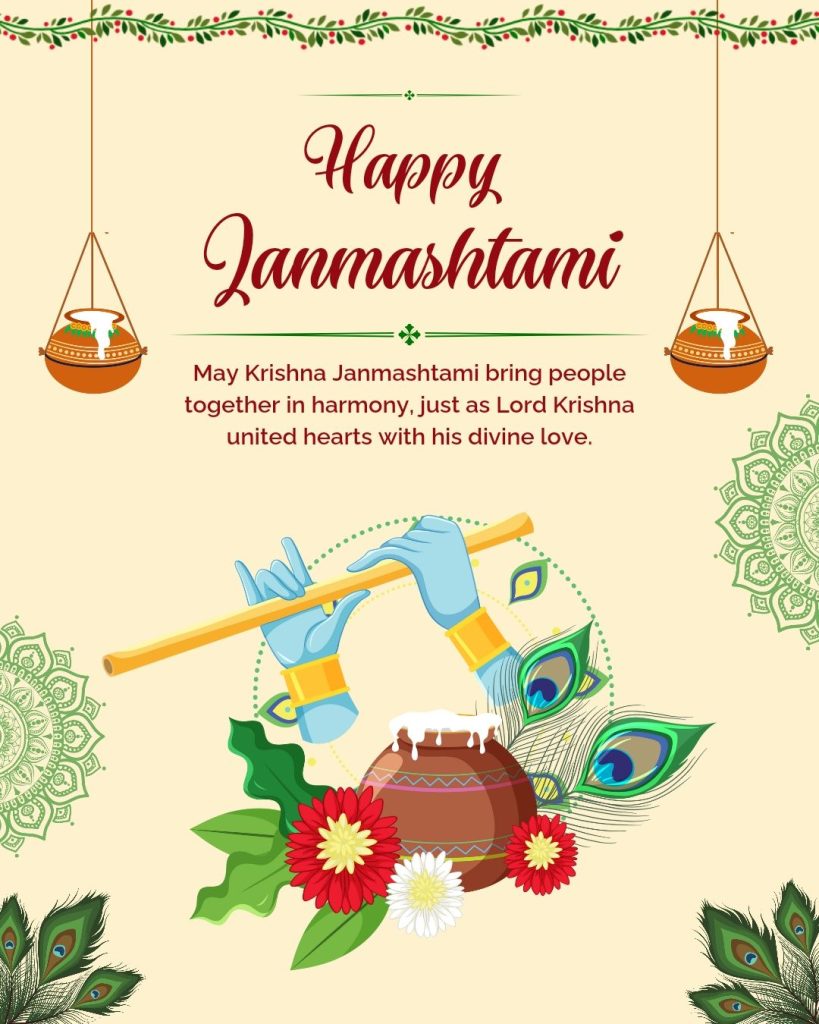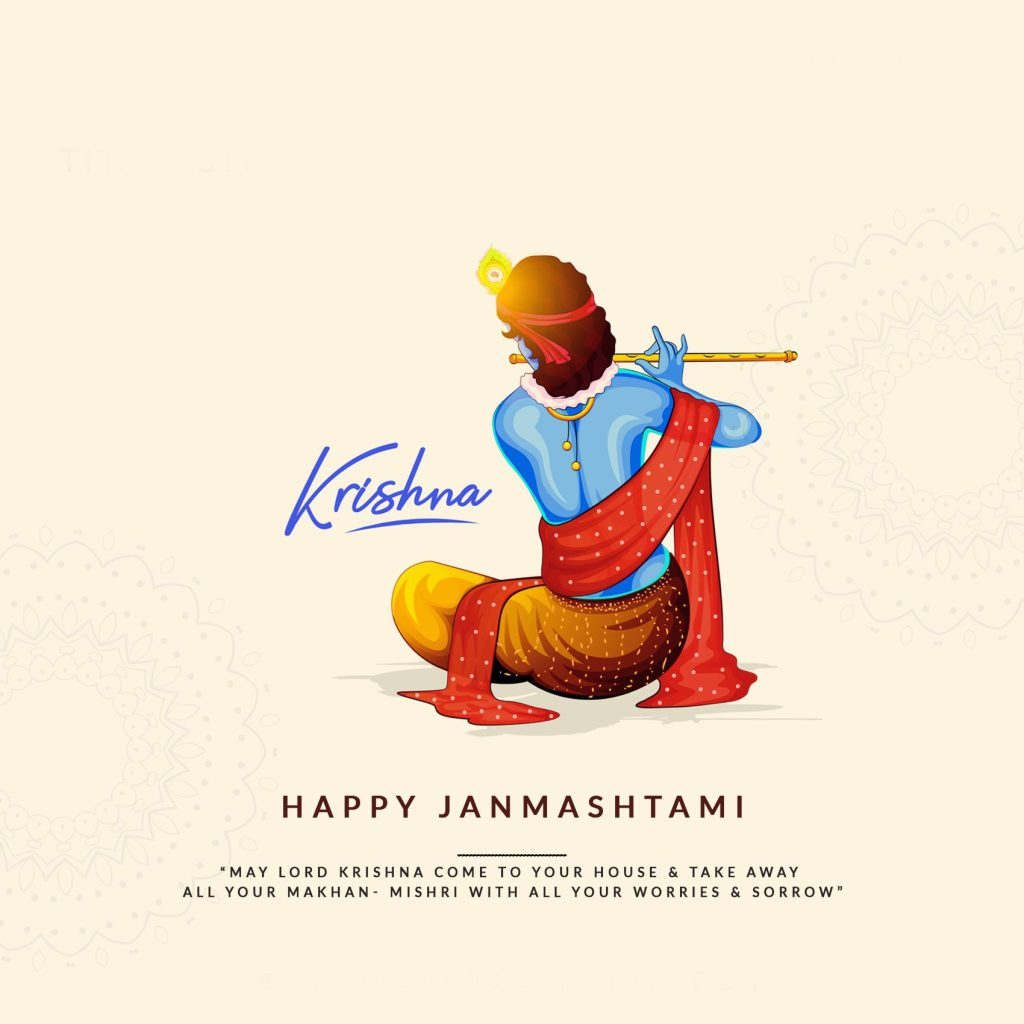Krishna Janmashtami, a vibrant Hindu festival, commemorates the birth of Lord Krishna, the eighth avatar of Vishnu. This joyous occasion is celebrated with great enthusiasm and devotion across India, especially in the states of Uttar Pradesh, Maharashtra, and Gujarat.

The Legend of Krishna’s Birth
The story of Krishna’s birth is one of divine intervention and human ingenuity. Kansa, the evil king of Mathura, feared the prophecy that his nephew would overthrow him. To prevent this, he tried to kill all newborn boys in Mathura. However, Krishna’s mother, Devaki, managed to save her son by secretly delivering him in a prison cell and entrusting him to the care of a cowherd named Nanda.

The Celebration of Janmashtami
Krishna Janmashtami is celebrated on the eighth day of the Krishna Paksha (dark fortnight) of the Hindu month of Bhadrapad. The festival is marked by various rituals and traditions, including:
- Dahi Handi: This popular tradition involves teams of young people forming human pyramids to reach and break a pot filled with curd and buttermilk, symbolizing Krishna’s mischievous childhood.
- Matki Phod: Similar to Dahi Handi, Matki Phod involves breaking a pot suspended high above the ground.
- Fasting and Vigil: Devotees observe a fast on Janmashtami and stay awake throughout the night, singing bhajans and performing rituals.
- Decoration of Temples: Temples are beautifully decorated with flowers, lights, and colorful banners.
- Feasting: After the midnight birth hour, devotees break their fast with a feast of Krishna’s favorite foods, such as milk, curd, and sweets.

The Significance of Krishna’s Birth
Krishna’s birth is considered a pivotal moment in Hindu mythology. He is revered as the supreme being, the protector of goodness, and the destroyer of evil. His teachings and actions have inspired millions of people for centuries.
- Divine Love: Krishna’s love for his devotees, especially the gopis of Vrindavan, is a powerful symbol of divine love and compassion.
- Dharma and Adharma: Krishna’s life is a constant struggle against injustice and tyranny. His teachings on dharma (righteousness) and adharma (unrighteousness) continue to guide people today.
- Bhakti Movement: Krishna’s teachings played a crucial role in the development of the Bhakti movement, which emphasized devotion and love for God.

Krishna Janmashtami is a celebration of divine love, devotion, and the triumph of good over evil. It is a time for people to connect with their spiritual side and seek inspiration from the life and teachings of Lord Krishna.



